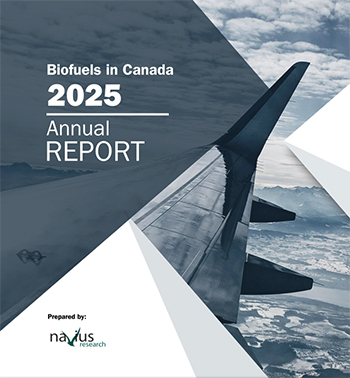SASKATOON — Canada’s consumption of canola-based biofuel is woefully inadequate, say crushers of the commodity.
Canola oil accounted for less than one-quarter of the feedstock for the biodiesel and renewable diesel used in Canada in 2024, according to the latest Biofuels in Canada annual report prepared by Navius Research.
It was the feedstock for 21 per cent of the biodiesel and 24 per cent of the renewable diesel used in Canada last year.
“From our perspective, that’s too low, especially given how much biofuel is starting to be consumed in Canada,” said Chris Vervaet, executive director of the Canadian Oilseed Processors Association (COPA).
Read Also

Agritechnica Day 3: Hybrid drive for a combine, data standards keep up to tech change and tractors of the year
Agritechnica 2025 Day 3: Hybrid drive for a combine, data standards keep up to tech change and tractors of the year.
Canada used 449 million litres of biodiesel and 1.46 billion litres of renewable diesel in 2024.
“For canola to have 20 to 25 per cent of that market share, that just isn’t good enough,” he said.
He noted that 64 percent of the renewable diesel consumed in Canada in 2024 was made from either tallow or used cooking oil (UCO).
“It is those feedstocks, used cooking oil in particular, that is elbowing canola out of the way,” said Vervaet.
There are suspicions that some of the imported UCO-based biofuel is mislabelled palm oil biofuel, which has sustainability concerns due to the deforestation associated with palm plantations.
However, there is no way to test the fuel for composition.
COPA is lobbying the federal government to amend its Clean Fuel Regulations (CFR) to prevent imported UCO-based biofuel from collecting biofuel credits.
That would help level the playing field for competing feedstocks such a canola oil.
Fred Ghatala, president of Advanced Biofuels Canada, the organization that commissioned the Navius report, said the 2024 canola-based biofuel use numbers were low for a variety of reasons.
He expects the market share of canola-based biofuel to climb in 2025.
The main reason canola’s share was low in 2024 is that Canada imported a lot of the biodiesel and renewable diesel that was used, and that imported biofuel was made with feedstocks such as tallow, used cooking oil and soybean oil.
Canada imported 692 million litres of biodiesel in 2024, but it also exported 514 million litres to the United States to collect the blender’s tax credit in that market.
That credit was replaced with the 45Z Clean Fuel Production Credit in 2025, and Canadian biofuel is not eligible for it, which means more canola-based Canadian biodiesel will be consumed domestically rather than exported.
Most of the renewable diesel used in Canada was imported due to a lack of domestic production facilities. Total imports amounted to 1.03 billion litres, and there were no exports of the fuel.
However, that is about to change due to the opening of the Braya Renewable Fuels plant in Newfoundland and Labrador in April 2024 and the Imperial Oil plant in Strathcona, Alta., this past August.
Each facility can produce one billion litres of the fuel annually.
Those new plants, combined with shifting government policy, is why Ghatala is confident canola oil feedstock use will climb in 2025.
British Columbia and Ontario have both implemented domestic content requirements in their provincial regulations, and Ottawa has signalled that the federal CFR will be amended to enhance the viability of domestic producers.
“We see that this is all positive for Canadian canola being used in increasing quantities,” said Ghatala.
The amount of canola-based biodiesel and renewable diesel used in Canada in 2024 would require an estimated 930,000 tonnes of seed. That number will likely rise substantially in 2025.
He noted that the total amount of canola used is higher than 930,000 tonnes because that estimate does not include Canadian biofuel that was exported to other markets.
Vervaet said a record amount of canola oil was consumed domestically during the first six months of 2025, thanks in a large part to the biofuel sector.
However, there is room for tremendous improvement in domestic consumption, and that is going to be necessary, given that Canada recently lost a five million tonne market for canola seed when China slapped a 75.8 per cent import duty on the crop.
“We need some bigger solutions and bigger ideas to drive demand for canola here in Canada,” he said.
Ghatala said farmers should know that Canada has one of the most agriculture-friendly biofuel policies in the entire Organization for Economic Co-operation and Development.
“We have world-leading policies. We just have to ensure that they endure and that we’re able to strengthen them so that they are able to use more domestic content,” he said.
He noted that Canada’s CFR is already adding $1.09 per bushel to canola prices.
“This is very, very good policy for the growers,” said Ghatala.

















